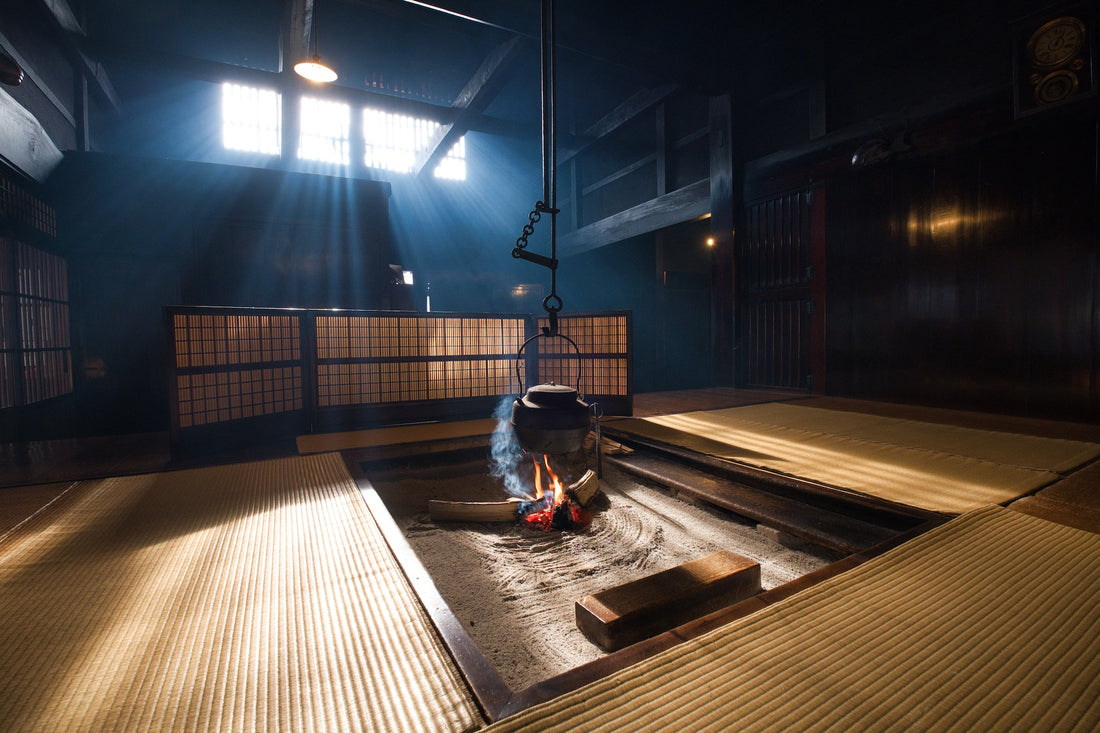Here’s a story that’s worth considering: The monk Wuzhuo was working as the cook at Wutai Monastery. One day, while stirring the soup for that day’s lunch, Manjushri—the bodhisattva of wisdom—arose out of the soup, right in front of Wuzhuo. Try to imagine this. You’re in your kitchen, standing over the stove, and then suddenly, without any warning, the very embodiment of wisdom (he frequently carries a sword, to cut through delusion) floats up out of the pot in front of you, cross-legged, radiant, otherworldly. What would you do?
It's a fun thought exercise in part because it’s so absurd. Would I scream? I hope not, but maybe. If the whole thing happened slowly enough, and if Manjushri didn’t seem threatening at all—which I imagine he wouldn’t, but still, he just came out of my soup!—I might also call someone else into the room. “Honey, kids, um, come here for a second!” In other words, realistically, I might get stuck on the sheer improbability of the whole thing.
But what if you could get past that? Manjushri was known to appear, occasionally at least, at Wutai Monastery, so even though this would be a shock to Wuzhuo, a thing like this existed within his worldview. On some level, he would have been able to think, “Hey, that thing I’ve heard about is happening. Crazy.” For him, we might imagine this is a rare opportunity to learn from, or even converse with, an enlightened being. And we might think the same for ourselves, if we could just wrap our heads around it.
So what does Wuzhuo do? Before Manjushri can even open his mouth, Wuzhuo starts beating him with the big wooden soup spoon, shouting at him to get out of his kitchen! Manjushri relents, and the image dissolves into nothingness. Wuzhuo then turns to his assistant, who was watching the whole thing and must (though the story doesn’t say) have had his jaw on the ground, and says, “I’d have done the same if it had been the Buddha himself.”
You may have heard the teaching, “If you meet the Buddha on the road, kill him.” That’s what Wuzhuo does here.
This is a story about spiritual confidence, or at least spiritual clarity. We can recognize this moment when we encounter a Buddha statue or meet an impressive teacher in person. We can even get a taste of it when we meet someone we feel deeply attracted to. In those encounters, there can be inspiration, motivation, humility—good things that help us on the path. But we’re also likely to put that person, statue or living, on a pedestal. We determine that what we were just doing doesn’t matter as much as this; alongside those feelings of inspiration, we feel a sense of lack in ourselves. And so we invite in that full sense of awe, because that lack—which we feel because this person arrived—can now only be filled by this person who has what we want. This might happen in the space of a breath, or it might take years, or it might be so sudden that we don’t even register it until later. But now here we are, imagining we’re separate from the thing we think we need.
Wuzhuo understood all of this about himself—he had to. He’d probably fallen into it over and over again, throughout his life. But when Manjushri appears, Wuzhuo knows what’s real. He knows what matters, and he knows that for all he has yet to learn, there’s also nothing missing. In that moment, he knows who he is, and who he is is the guy who has to make the soup. So instead of dropping everything and making prostrations, he beats wisdom with a spoon. He doesn’t have time for his own projections about enlightenment. This moment is real enough. This moment is enough, period.
Manjushri probably isn’t going to float up out of my soup or appear to me in a casserole. He probably won’t for you, either. But each of us has something—or myriad things, more likely—that takes us out of where we are and what we’re doing, that leads us to devalue the task at hand, the moment we’re in, the person in front of us, even when that person is in the mirror. Something we put “out there” because we don’t feel we’re ready for it, or that we deserve it, or that this moment can possibly be sufficient without it.
Whatever is in your hands, whatever air you’re breathing, it matters. Whoever you are right now—you may not feel like you’re enough, but you’re your whole self, complete. Manjushri can show up, but he’s seasoning, not the soup itself. Just keep making lunch. And keep that spoon ready.
About the Author:
Koun Franz is a Montana-born Soto Zen priest who trained, taught, and translated in traditional monasteries in Japan. He is the guiding teacher of Thousand Harbours Zen in Halifax, Nova Scotia (his talks can be found on the their podcast) and former editor of Buddhadharma: The Practitioner’s Guide.


1 comment
Thank you! I finally understand the saying, “If you meet the Buddha on the road, kill him.”